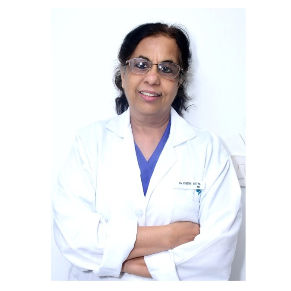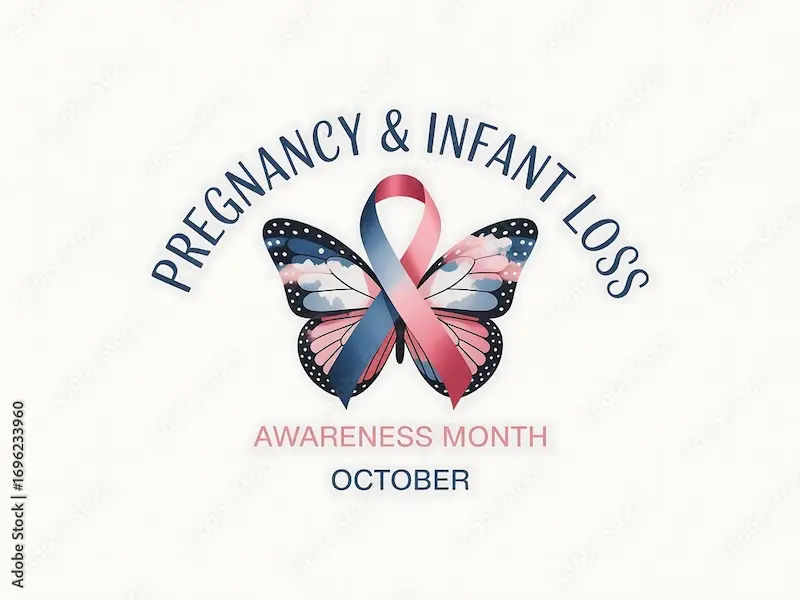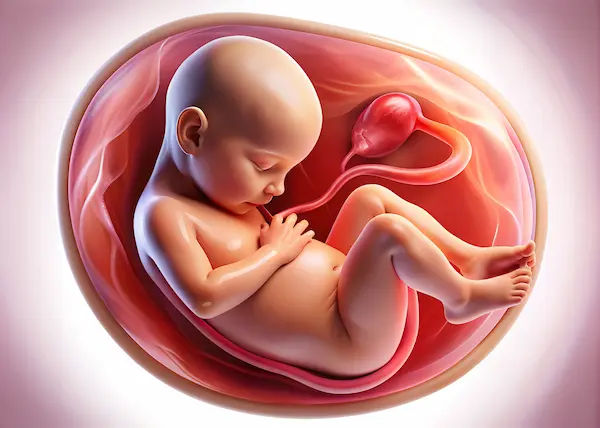Your Complete Guide to Pregnancy Planning and Preparation
A comprehensive guide to pregnancy planning and preparation. Learn about preconception health, nutrition, lifestyle changes, and fertility tips for a healthy start to parenthood.

Written by Dr. Siri Nallapu
Reviewed by Dr. D Bhanu Prakash MBBS, AFIH, Advanced certificate in critical care medicine, Fellowship in critical care medicine
Last updated on 13th Jan, 2026

Introduction
Embarking on the journey to parenthood is one of life's most exciting decisions. While much focus is placed on the 40 weeks of pregnancy itself, the steps you take before conception are equally crucial for your health and your baby's development. This comprehensive guide to pregnancy planning is designed to empower you with knowledge and actionable steps. Think of it as your preconception roadmap, covering everything from scheduling a doctor's visit and optimising your nutrition to understanding your cycle and preparing your lifestyle. Whether you're just starting to think about a family or are ready to try immediately, proper preparation can significantly impact your pregnancy experience and your child's lifelong health. Let's dive into the essential tips and strategies for a healthy start.
Why Pregnancy Planning Matters: More Than Just a Positive Test
Planning for pregnancy transforms it from a hopeful event into an intentional journey. It’s about creating the optimal environment for a new life to grow. Studies show that preconception care can significantly reduce the risk of birth defects, preterm birth, and other complications. For instance, taking folic acid at least one month before conception and during early pregnancy can prevent up to 70% of serious neural tube defects. This proactive approach allows you to manage any chronic health conditions, achieve a healthy weight, and eliminate harmful habits, all of which contribute to a smoother pregnancy and a healthier baby.
The Benefits of a Preconception Check-up
A preconception visit with your obstetrician or healthcare provider is the cornerstone of pregnancy planning. It’s not just a formality; it’s a strategic session to assess your baseline health. This appointment allows your doctor to identify potential risk factors, provide personalised advice, and ensure your body is truly ready for the demands of pregnancy. If you have a pre-existing condition like diabetes or hypertension, consulting a doctor online with Apollo24|7 can be a great first step to discuss how to manage it optimally before you conceive.
Key Questions Your Doctor Will Ask
Be prepared to discuss your personal and family medical history, current medications, vaccination records, and your menstrual cycle. They will also inquire about your diet, exercise routine, and lifestyle habits like smoking or alcohol consumption. This holistic review helps create a tailored preconception health plan just for you.
Your Preconception Health Checklist: A Step-by-Step Guide
A checklist simplifies the process, ensuring you don’t miss any critical steps on your path to parenthood.
Scheduling a Doctor's Visit
Aim to schedule this visit at least 3 months before you plan to start trying. This gives you ample time to implement any recommended changes, such as adjusting medications or completing vaccination cycles.
Reviewing Your Family Medical History
Discuss any family history of genetic disorders like cystic fibrosis, sickle cell anaemia, or birth defects. This information can determine if you or your partner are carriers and if genetic counselling is recommended before you conceive.
Updating Vaccinations and Screenings
Immunity to certain diseases is vital. Your doctor will likely check your immunity to rubella and chickenpox, as contracting these during pregnancy can cause serious problems. They may also recommend screenings for STIs, as some can affect fertility and foetal health.
The Foundation of Fertility: Nutrition and Diet
What you eat directly impacts your fertility and provides the building blocks for your baby’s early development.
Essential Prenatal Vitamins and Minerals
The most critical nutrient is folic acid. Experts recommend 400 to 800 micrograms (mcg) daily. Iron is also essential to support increased blood volume, and calcium is needed for building foetal bones and teeth. A prenatal vitamin is the easiest way to ensure you're meeting these increased demands.
Foods to Embrace for Optimal Fertility
Focus on a balanced diet rich in fruits, vegetables, whole grains, lean proteins, and healthy fats. Leafy greens are excellent for folate, while citrus fruits and beans provide iron and fibre. Omega-3 fatty acids, found in walnuts and flaxseeds, are also beneficial for hormonal health.
Foods and Substances to Limit or Avoid
Start avoiding high-mercury fish (like swordfish and king mackerel), unpasteurised dairy, and deli meats now to prevent exposure to listeria. It's also wise to drastically reduce processed foods, sugary drinks, and excessive caffeine. The general recommendation for caffeine is to stay under 200 mg per day (about one 12-ounce cup of coffee).
Optimising Your Lifestyle for a Healthy Pregnancy
Your daily habits play a monumental role in your fertility and a future pregnancy.
Achieving a Healthy Weight Before Conception
Being significantly underweight or overweight can affect hormone levels and ovulation, making conception more difficult. It can also increase the risk of pregnancy complications like gestational diabetes and pre-eclampsia. Achieving a healthy BMI through diet and exercise is one of the best things you can do.
Consult an Gynecologist doctor for the best advice
The Impact of Smoking, Alcohol, and Caffeine
Smoking and vaping damage eggs and sperm and increase the risk of miscarriage and ectopic pregnancy. There is no known safe level of alcohol during pregnancy or while trying to conceive, so it's best to eliminate it entirely. As mentioned, limit caffeine intake.
The Role of Exercise and Stress Management
Regular, moderate exercise (like brisk walking, swimming, or yoga) helps maintain a healthy weight, reduces stress, and improves circulation. High levels of stress can disrupt your menstrual cycle, so incorporating stress management techniques like meditation, deep breathing, or adequate sleep is a key part of how to prepare your body for pregnancy.
Understanding Your Cycle and Maximising Fertility
Knowing how your body works is your greatest asset when trying to conceive.
How to Track Your Ovulation Accurately
Ovulation is when your ovary releases an egg. You can track it using several methods: calendar tracking, monitoring cervical mucus (which becomes clear and stretchy, like egg whites, around ovulation), using ovulation predictor kits (OPKs), or tracking your basal body temperature (BBT), which slightly rises after ovulation.
Identifying Your Fertile Window
Your fertile window is the 5-6 days leading up to and including the day of ovulation. Sperm can live inside the female reproductive tract for up to 5 days, but the egg only survives for about 12-24 hours after ovulation. Having intercourse every other day during this window maximises your chances of conception.
Conclusion
Pregnancy planning is an empowering process that puts you in the driver's seat of your reproductive health. By taking these proactive steps—nourishing your body, understanding your cycle, and partnering with your healthcare provider—you are laying the strongest possible foundation for a healthy pregnancy and a thriving baby. Remember, this journey is unique for everyone. Be kind to yourself, celebrate the positive changes you're making, and approach the process with patience and optimism. The effort you invest now is the first and most profound gift you can give to your future child. If you have specific concerns about your fertility or underlying health conditions, consult a doctor online with Apollo24|7 for personalised preconception advice tailored to your needs.
Consult an Gynecologist doctor for the best advice
Consult an Gynecologist doctor for the best advice
Dr. Sushma Krishnegowda
Obstetrician and Gynaecologist
20 Years • MBBS,DGO – Obstetrics & Gynaecology,DNB – Obstetrics & Gynaecology,Laparoscopic Training
Bengaluru
Apollo Hospitals Sheshadripuram, Bengaluru

Dr Bhawna Garg
Gynaecological Oncologist
26 Years • MBBS, MS, (PGI MS ROHTAK) FELLOWSHIP GYNECOLOGY ONCOLOGY, (CANCER INSTITUTE CHENNAI)
Delhi
Apollo Hospitals Indraprastha, Delhi

Dr Lekha K L
Obstetrician and Gynaecologist
15 Years • MBBS,DGO & DNB in Obstetrics and Gynecology
Angamaly
Apollo Hospitals Karukutty, Angamaly

Dr. Vineet Mishra
Infertility Specialist
36 Years • MD, Phd, DSc
Ahmedabad
Apollo Hospitals - Gandhinagar, Ahmedabad, Ahmedabad

Dr. Chitra Setya
Obstetrician and Gynaecologist
37 Years • MBBS, MD
Noida
Apollo Hospitals Sector 26, Noida
(75+ Patients)
Consult an Gynecologist doctor for the best advice
Dr. Sushma Krishnegowda
Obstetrician and Gynaecologist
20 Years • MBBS,DGO – Obstetrics & Gynaecology,DNB – Obstetrics & Gynaecology,Laparoscopic Training
Bengaluru
Apollo Hospitals Sheshadripuram, Bengaluru

Dr Bhawna Garg
Gynaecological Oncologist
26 Years • MBBS, MS, (PGI MS ROHTAK) FELLOWSHIP GYNECOLOGY ONCOLOGY, (CANCER INSTITUTE CHENNAI)
Delhi
Apollo Hospitals Indraprastha, Delhi

Dr Lekha K L
Obstetrician and Gynaecologist
15 Years • MBBS,DGO & DNB in Obstetrics and Gynecology
Angamaly
Apollo Hospitals Karukutty, Angamaly

Dr. Vineet Mishra
Infertility Specialist
36 Years • MD, Phd, DSc
Ahmedabad
Apollo Hospitals - Gandhinagar, Ahmedabad, Ahmedabad

Dr. Chitra Setya
Obstetrician and Gynaecologist
37 Years • MBBS, MD
Noida
Apollo Hospitals Sector 26, Noida
(75+ Patients)
More articles from pregnancy
Frequently Asked Questions
How long does it typically take to get pregnant?
For most healthy couples, it can take up to a year. About 85% of couples conceive within 12 months of regular, unprotected intercourse. Your chances are highest if you accurately time intercourse during your fertile window.
When should I stop taking birth control before trying to conceive?
You can start trying immediately after stopping barrier methods (condoms, diaphragms). For hormonal methods like the pill, patch, or ring, your cycle may return to normal immediately, or it may take a few months. It's safe to start trying right away.
Do I need to see a doctor before I start trying, even if I'm healthy?
Yes, a preconception check-up is recommended for everyone. It's an opportunity to ensure you are in optimal health, update vaccinations, and get personalised advice that can prevent potential issues, even if you feel perfectly healthy.
How does the partner's health affect pregnancy planning?
A partner's health is crucial. Sperm quality can be affected by lifestyle, diet, smoking, and age. Partners should also focus on a healthy lifestyle, take a multivitamin with zinc and selenium, and avoid toxins to improve fertility outcomes.
What are the first signs of pregnancy I should look for?
The most common early sign is a missed period. Others include tender/swollen breasts, fatigue, nausea (morning sickness), increased urination, and food aversions or cravings. A home pregnancy test is the most reliable way to confirm.




